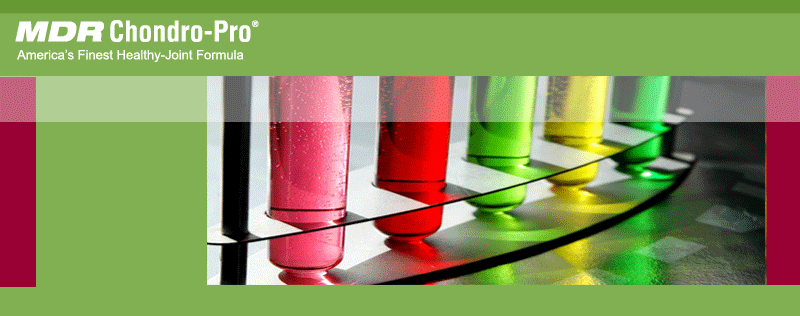


On this page you will find late-breaking research or clinical studies relating to arthritis and which natural compounds impact arthritis, from glucosamine and antioxidants to vitamins and minerals. Learn what help there is for alleviating arthritis pain or general joint pain. Read what might increase your risk for joint pain and what you can do to reduce your risk, naturally. Sometimes reducing your pain and protecting your cartilage is a matter of diet and taking the right nutritional supplement with ingredients shown to to help protect cartilage and reduce pain and inflammation.
_____________________________________________________________________________________________________________
Grape Powder Alleviates Joint Inflammation
Johns Hopkins Researchers at Neuroscience 2008 - Table grapes are high in flavonoids, which are thought to have strong antioxidant and anti-inflammatory properties. Now, researchers at the Johns Hopkins University School of Medicine have shown that powdered grapes appear to reduce pain and inflammation in a rat model of arthritis, where rats knees are inflamed using a chemical injection.
Some rats were fed the powdered equivalent of 10 cups of grapes once a day after the arthritis-inducing injection, while others got only sugar water. Over the course of four days after the chemical injection, the researchers tested the rats' inflammation levels and pain responses by measuring their sensitivity to mechanical stimulation such as prodding their paws and measuring the amount of knee swelling. Rats fed grape powder could with stand stronger prodding than their sugar-fed counterparts.
The researchers also compared the grape powder treatment with a common nonsteroidal anti-inflammatory drug, meloxicam, and found that while the dose of meloxicam alone was not sufficient to reduce pain, animals fed a combination of grape powder and meloxicam experienced even less pain from their arthritis than animals that received either substance alone. The combination treatment also reduced the knee swelling associated with inflammation.
SOURCE: Medical News Today
_____________________________________________________________________________________________________________
The effect of hyaluronic acid on IL-1beta-induced chondrocyte apoptosis in a rat model of osteoarthritis.
Researchers in this study showed that when rats with inflamed joints and arthritis were treated with hyaluronic acid, damage to cartilage cells and death of cartilage cells were greatly reduced. The suppression of inflammatory elements activity within the joint was also achieved.
SOURCE: J Orthop Res. 2008 Dec;26(12):1643-8.
_____________________________________________________________________________________________________________
Green tea protects rats against autoimmune arthritis by modulating disease-related immune events.
Green tea, a product of the dried leaves of Camellia sinensis, is the most widely consumed beverage in the world. The polyphenolic compounds from green tea possess antiinflammatory properties. Rats with arthritis consumed green tea in drinking water for 1-3 weeks. Feeding green tea to rats for 9 days significantly reduced the severity of arthritis compared with the water-fed controls. Interestingly, green tea-fed rats had a lower concentration of the proinflammatory cytokine interleukin (IL)-17 but a greater concentration of the immunoregulatory cytokine IL-10 than controls. Green tea feeding also suppressed the anti-Bhsp65 antibody response. Thus, green tea induced changes in arthritis-related immune responses. This study suggests further systematic exploration of dietary supplementation with green tea as an adjunct nutritional strategy for the management of RA.
SOURCE: J Nutr. 2008 Nov;138(11):2111-6.
Green Tea may protect against autoimmune arthritis
Prior studies have shown that green tea polyphenols may act as anti-inflammatory agents. But a new study reports that these polyphenols may also reduce the severity of autoimmune arthritis.
Researchers investigated whether green tea polyphenols (GTP) can afford protection against autoimmune arthritis. Lab animals consumed green tea in their drinking water for 1–3 weeks and then arthritis was induced. Thereafter, they were observed regularly and graded for signs of arthritis.
The group of animals fed the green tea water showed a significantly reduced severity of arthritis compared with the water-fed controls. Interestingly, they also had a lower concentration of the proinflammatory cytokine interleukin (IL)-17 but a greater concentration of the immunoregulatory cytokine IL-10 than controls. GTP feeding also suppressed the antibody response. Thus, green tea induced changes in arthritis-related immune responses. The researchers suggested further systematic exploration of dietary supplementation with green tea as an adjunct nutritional strategy for the management of rheumatoid arthritis.
SOURCE: American Society for Nutrition J. Nutr. 138:2111-2116, November 2008
_____________________________________________________________________________________________________________
Cherries ease arthritis and are heart-healthy
According to recent studies, the old saying, “life is like a bowl of cherries,” ought to be changed to, “a healthy life depends upon a bowl of cherries.”
Research reveals tart cherries, enjoyed as dried and frozen cherries and cherry juice, have among the highest levels of powerful antioxidants compared to other fruits. They also contain other important nutrients such as beta-carotene (19 times as much as blueberries or strawberries!) vitamin C, potassium and fiber.
Scientific evidence links cherries to several health benefits – from helping to ease the pain of arthritis and gout, to reducing risk factors for heart disease, diabetes and certain cancers. Cherries also have been found to help regulate sleep patterns (that’s because they contain melatonin, which is great for jet lag), prevent memory loss, reduce the risk for metabolic syndrome, and delay the aging process.
A new study from the University of Michigan Integrative Medicine Program suggests that a cherry-enriched diet may help reduce inflammation, lowering the risk of type-2 diabetes and cardiovascular disease. Ongoing research shows that inflammation may be a marker for many chronic diseases. The researchers say emerging studies like this are important in examining the role diet may play in disease management and prevention.
In this animal study, results showed that both lean and at-risk animals had 50 percent lower levels of inflammation and also experienced lower cholesterol and triglyceride levels on the cherry-enriched diet, two key risk factors for heart disease. The most at-risk animals also reduced their abdominal fat and total fat mass – particularly important given the link between excess abdominal fat and disease.
While there’s no clear guideline on how many cherries it takes to reap the benefits, experts suggest that 1-2 servings of cherries daily can help provide some of the health benefits identified in the research.
Your Job May be the Cause of Joint Pain
It has long been known that environmental factors play a part in the development of rheumatoid arthritis; smoking and drinking alcohol, along with heredity, are particularly instrumental in increasing the risk of the disease.
Scientists at Karolinska Institutet have now produced results that suggest that working environment factors can also increase the chances of developing rheumatoid arthritis.
This is especially true of psychosocial workload, in particular what is called "low decision latitude", according to the results of a study in progress due to be published in Psychotherapy and Psychosomatics. The project is being led by Professor Lars Alfredsson of the Department of Environmental Medicine and Professor Lars Klareskog of the Department of Medicine.
"We've uncovered clear correlations between the disease and jobs in which one cannot control one's own situation," says Professor Alfredsson.
______________________________________________________________________________________________________________________________________________________________________________________________________________________________________________________________
Vitamin D deficiency linked to pain
According to a study conducted in England, low vitamin D levels may contribute to chronic pain among women, The findings are based on the blood analyses and pain scores of almost 7,000 men and women from across England, Scotland and Wales, all of whom were born during one week in March 1958.
Women with vitamin D levels between 75 and 99 mmol/litre had the lowest rates of this type of pain, at just over percent, while women with levels of less than 25 mmol/litre had the highest rates, at 14.4 percent. There appeared to be a J shaped curve, with the prevalence of widespread pain at 10% or higher among those with vitamin D levels above 99 mmol/litre.
SOURCE: Ann Rheum Dis. 2008 Aug 12.
Home | About MDR | Why Chondro-Pro | Other helpful supplements | Useful resources | Site map | Contact us